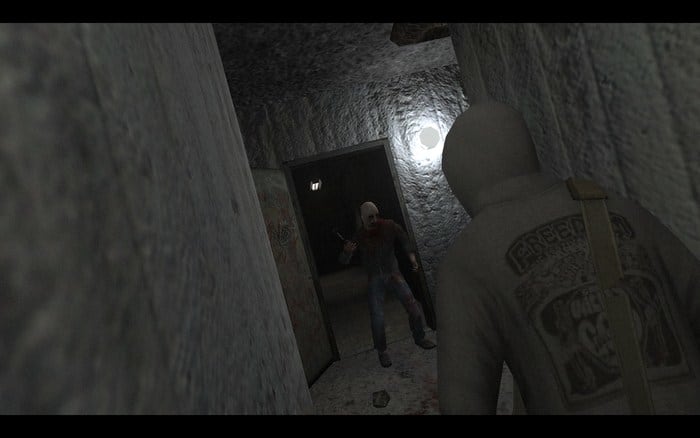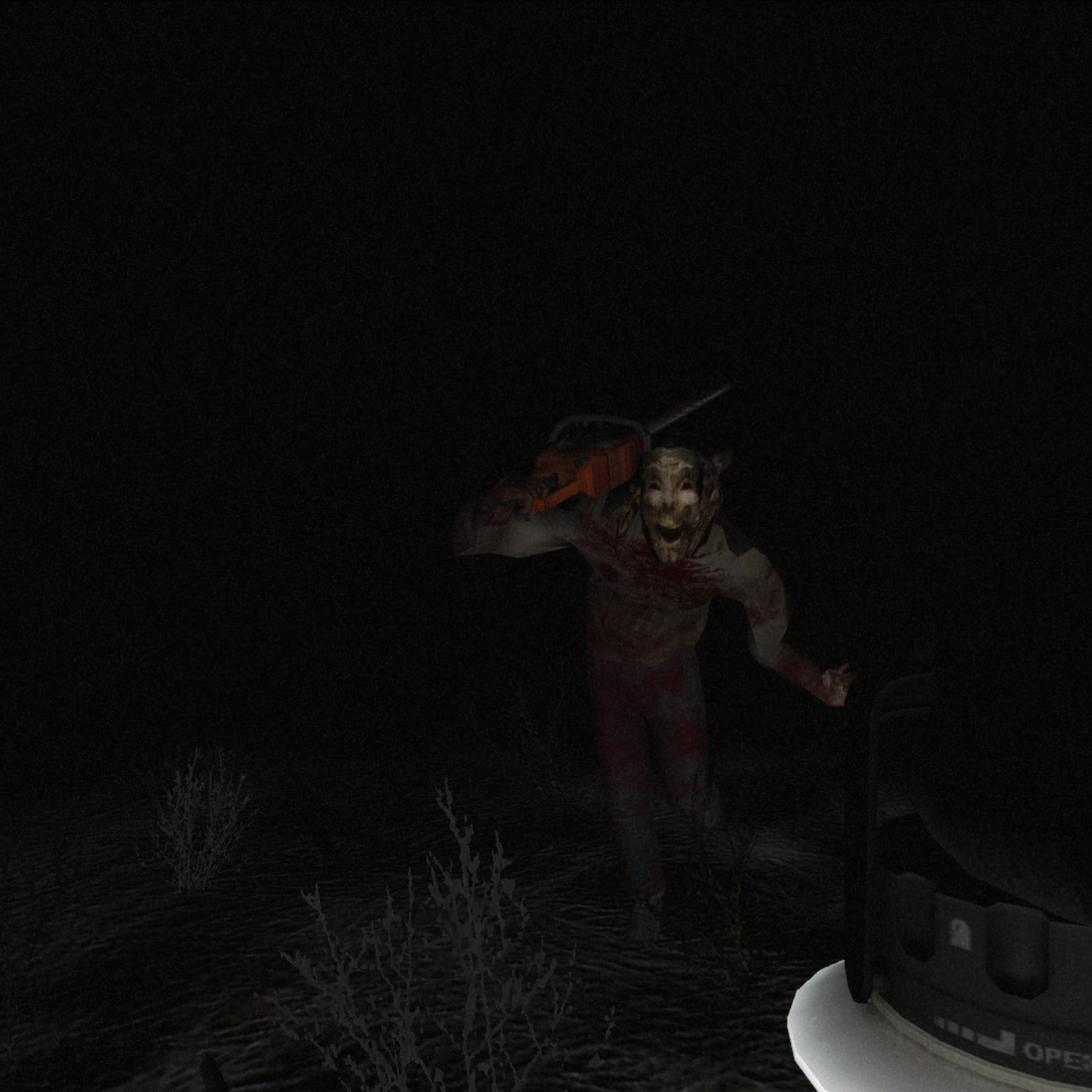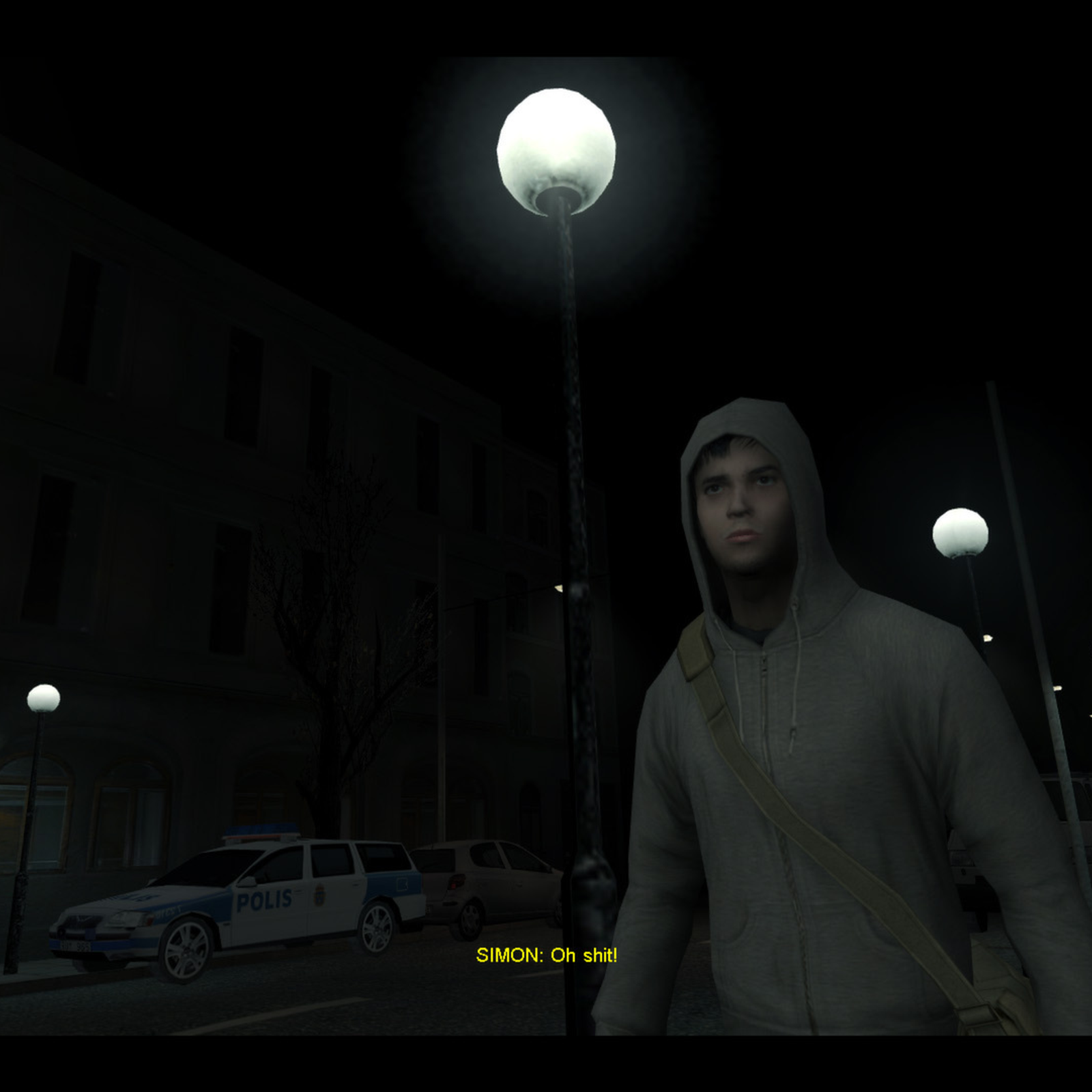If you want to leave ThisIsGamer a tip for writing this Cry of Fear guide you can do so here. Cry of Fear Walkthrough Chapter 1 - Lost in a City. Home Games Cry of Fear Chapter 1 - Lost in a City Simon gets a text from his mother to get home as soon as possible. Half-Life - Cry of Fear v.1.0 - Game mod - Download. The file Cry of Fear v.1.0 is a modification for Half-Life, a(n) action game. Download for free. File type Game mod. File size 1654.2 MB. Last update Saturday, February 9, 2013. Downloads (7 days) 37. Continuous, Cry, Emergency, Fear, Fervor, Government, Grave, Kept, National, Our, Patriotic, Perpetual, State, Us Quotes to Explore The tree of liberty must be refreshed from time to time with the blood of patriots and tyrants. Want to play CRY OF FEAR with me? Game Country Network Name Date; Cry of Fear: Romania: ASD ASD:: Cry of Fear: Spain: paquito:. Cry of fear free download - Far Cry 2, Fear, Far Cry v1.3 patch, and many more programs.
Act 1, scene 2
Mythological
And fortune, on his damnèd quarrel smiling,Showed like a rebel’s whore. (1.2.14–15)
This is an allusion to Lady Fortuna, the Roman goddess of fortune, who the Captain references as behaving like Madonwald’s “whore” on the battlefield.
Religious
Except they meant to bathe in reeking wounds,Or memorize another Golgotha,I cannot tell—But I am faint, my gashes cry for help. (1.2.39–42)
This is an allusion to Golgotha, the place where Christ was crucified.
Mythological
Assisted by that most disloyal traitor,The thane of Cawdor, began a dismal conflict,Till that Bellona’s bridegroom, lapped in proof,Confronted him with self-comparisons[.] (1.2.52–55)
This is an allusion to Bellona, the Roman goddess of war.
Act 1, scene 7
Religious
Besides, this DuncanHath borne his faculties so meek, hath beenSo clear in his great office, that his virtuesWill plead like angels, trumpet-tongued, againstThe deep damnation of his taking-off;And pity, like a naked newborn babe,Striding the blast, or heaven’s cherubim, horsed[.] (1.7.16–22)
The term “heaven’s cherubim” is an allusion to an angel of heaven.
Literary
Wouldst thou have thatWhich thou esteem’st the ornament of life,And live a coward in thine own esteem,Letting “I dare not” wait upon “I would,”Like the poor cat i’ th’ adage? (1.7.41–45)
This is an allusion to an adage about a cat that likes fish but not wetting her paws.
Act 2, scene 1
Mythological
Witchcraft celebratesPale Hecate’s offerings[.] (2.1.51–52)
This is an allusion to Hecate, the Greek goddess of magic, witchcraft, ghosts, necromancy, and the night and moon.
Historical
[A]nd withered murder,Alarumed by his sentinel, the wolf,Whose howl’s his watch, thus with his stealthy pace,With Tarquin’s ravishing strides, towards his designMoves like a ghost. (2.1.52–56)
This is an allusion to Tarquin, a Roman prince who raped Lucretia, a Roman wife, in her bed at night.
Act 2, scene 2
Mythological
Will all great Neptune’s ocean wash this bloodClean from my hand? (2.2.60–61)
This is an allusion to Neptune, the Roman god of the sea.
Religious
This is a biblical allusion to Pontius Pilate publicly washing his hands to absolve himself of any guilt for Christ’s crucifixion.
Act 2, scene 3
Religious
Knock, knock, knock! Who’s there, i’ th’ name ofBeelzebub? (2.3.2)
This is an allusion to Satan, also called Beelzebub, or one of the seven princes of Hell.
Historical/Political
Faith, here’s an equivocator that could swear in both thescales against either scale[.] (2.3.3–4)

This is an allusion to the Gunpowder Plot against King James I.
Mythological
Approach the chamber, and destroy your sightWith a new Gorgon. (2.3.45–46)
This is an allusion to Medusa, a Greek monster with snakes for hair who could turn men to stone.
Religious
Up, up, and seeThe great doom’s image! Malcolm! Banquo! (2.3.52–53)
The phrase “[t]he great doom” is an allusion to doomsday, or the end of times as described in Abrahamic religions.
Act 3, scene 1
Historical/Political/Literary
There is none but heWhose being I do fear, and under himMy genius is rebuked, as it is saidMark Antony’s was by Caesar. (3.1.56–59)
This is an allusion to Mark Antony and Julius Caesar, two famous Roman politicians and leaders of the Roman Republic, as well as a reference to Shakespeare’s play Antony and Cleopatra, in which a soothsayer predicts Antony’s fortunes would be lesser than Caesar’s.
Religious
[A]nd mine eternal jewelGiven to the common enemy of man[.] (3.1.70–71)
This is an allusion to Macbeth giving his soul, or “mine eternal jewel,” to Satan, the “common enemy of man.”
Act 3, scene 2
Mythological
Ere the bat hath flownHis cloistered flight, ere to black Hecate’s summons[.] (3.2.42–43)
This is an allusion to Hecate, the Greek goddess of magic, witchcraft, ghosts, necromancy, and the night and moon.
Act 3, scene 5
Mythological
Get you gone,And at the pit of AcheronMeet me i’ th’ morning. (3.5.14–16)
This is an allusion to Acheron, a river in Hades in Greek and Roman mythology.
Act 4, scene 1
Mythological
This is an allusion to the harpies, the half-human, half-bird monsters in Greek mythology who tormented people.
Religious
What, will the line stretch out to th’ crack of doom? (4.1.122)
This is an allusion to doomsday, or the end of times as described in Abrahamic religions.
Act 4, scene 3
Religious
To offer up a weak, poor, innocent lambT’ appease an angry god. (4.3.16–17)
This an allusion to Christ, the “lamb of God.”
Religious
Angels are bright still, though the brightest fell. (4.2.23)
This is an allusion to Satan, heaven’s “brightest” angel who was banished and “fell” to Hell.
Act 5, scene 8
Cry For Fear Macbeth
Literary
Why should I play the Roman fool and dieOn mine own sword? (5.8.1–2)
Cry Of Fear For Mac
This is an allusion to an old folktale about a Roman soldier on the losing side of a battle who kills himself to avoid being killed by his enemies.
Mythological
This is an allusion to Cerberus, a three-headed hound from Hell in Greek mythology.
Act 1, scene 2
Mythological
And fortune, on his damnèd quarrel smiling,Showed like a rebel’s whore. (1.2.14–15)
This is an allusion to Lady Fortuna, the Roman goddess of fortune, who the Captain references as behaving like Madonwald’s “whore” on the battlefield.
Religious
Except they meant to bathe in reeking wounds,Or memorize another Golgotha,I cannot tell—But I am faint, my gashes cry for help. (1.2.39–42)
This is an allusion to Golgotha, the place where Christ was crucified.
Mythological
Assisted by that most disloyal traitor,The thane of Cawdor, began a dismal conflict,Till that Bellona’s bridegroom, lapped in proof,Confronted him with self-comparisons[.] (1.2.52–55)
This is an allusion to Bellona, the Roman goddess of war.
Act 1, scene 7
Religious


Besides, this DuncanHath borne his faculties so meek, hath beenSo clear in his great office, that his virtuesWill plead like angels, trumpet-tongued, againstThe deep damnation of his taking-off;And pity, like a naked newborn babe,Striding the blast, or heaven’s cherubim, horsed[.] (1.7.16–22)
The term “heaven’s cherubim” is an allusion to an angel of heaven.
Literary
Wouldst thou have thatWhich thou esteem’st the ornament of life,And live a coward in thine own esteem,Letting “I dare not” wait upon “I would,”Like the poor cat i’ th’ adage? (1.7.41–45)
This is an allusion to an adage about a cat that likes fish but not wetting her paws.
Act 2, scene 1
Mythological
Witchcraft celebratesPale Hecate’s offerings[.] (2.1.51–52)
This is an allusion to Hecate, the Greek goddess of magic, witchcraft, ghosts, necromancy, and the night and moon.
Historical
[A]nd withered murder,Alarumed by his sentinel, the wolf,Whose howl’s his watch, thus with his stealthy pace,With Tarquin’s ravishing strides, towards his designMoves like a ghost. (2.1.52–56)
This is an allusion to Tarquin, a Roman prince who raped Lucretia, a Roman wife, in her bed at night.
Act 2, scene 2
Mythological
Will all great Neptune’s ocean wash this bloodClean from my hand? (2.2.60–61)
This is an allusion to Neptune, the Roman god of the sea.
Cry For Fear Machine
Religious
This is a biblical allusion to Pontius Pilate publicly washing his hands to absolve himself of any guilt for Christ’s crucifixion.
Act 2, scene 3
Religious
Knock, knock, knock! Who’s there, i’ th’ name ofBeelzebub? (2.3.2)
This is an allusion to Satan, also called Beelzebub, or one of the seven princes of Hell.
Historical/Political
Faith, here’s an equivocator that could swear in both thescales against either scale[.] (2.3.3–4)
This is an allusion to the Gunpowder Plot against King James I.
Mythological
Approach the chamber, and destroy your sightWith a new Gorgon. (2.3.45–46)
This is an allusion to Medusa, a Greek monster with snakes for hair who could turn men to stone.
Religious
Up, up, and seeThe great doom’s image! Malcolm! Banquo! (2.3.52–53)
The phrase “[t]he great doom” is an allusion to doomsday, or the end of times as described in Abrahamic religions.
Act 3, scene 1
Historical/Political/Literary
There is none but heWhose being I do fear, and under himMy genius is rebuked, as it is saidMark Antony’s was by Caesar. (3.1.56–59)
This is an allusion to Mark Antony and Julius Caesar, two famous Roman politicians and leaders of the Roman Republic, as well as a reference to Shakespeare’s play Antony and Cleopatra, in which a soothsayer predicts Antony’s fortunes would be lesser than Caesar’s.
Religious
[A]nd mine eternal jewelGiven to the common enemy of man[.] (3.1.70–71)
This is an allusion to Macbeth giving his soul, or “mine eternal jewel,” to Satan, the “common enemy of man.”
Act 3, scene 2
Mythological
Ere the bat hath flownHis cloistered flight, ere to black Hecate’s summons[.] (3.2.42–43)
This is an allusion to Hecate, the Greek goddess of magic, witchcraft, ghosts, necromancy, and the night and moon.
Act 3, scene 5
Mythological
Get you gone,And at the pit of AcheronMeet me i’ th’ morning. (3.5.14–16)
This is an allusion to Acheron, a river in Hades in Greek and Roman mythology.
Act 4, scene 1
Mythological
This is an allusion to the harpies, the half-human, half-bird monsters in Greek mythology who tormented people.
Religious
What, will the line stretch out to th’ crack of doom? (4.1.122)
This is an allusion to doomsday, or the end of times as described in Abrahamic religions.
Act 4, scene 3
Religious

Cry For Fear Mac And Cheese
To offer up a weak, poor, innocent lambT’ appease an angry god. (4.3.16–17)
This an allusion to Christ, the “lamb of God.”
Religious
Angels are bright still, though the brightest fell. (4.2.23)
This is an allusion to Satan, heaven’s “brightest” angel who was banished and “fell” to Hell.
Act 5, scene 8
Literary
Why should I play the Roman fool and dieOn mine own sword? (5.8.1–2)
This is an allusion to an old folktale about a Roman soldier on the losing side of a battle who kills himself to avoid being killed by his enemies.

Mythological
This is an allusion to Cerberus, a three-headed hound from Hell in Greek mythology.
